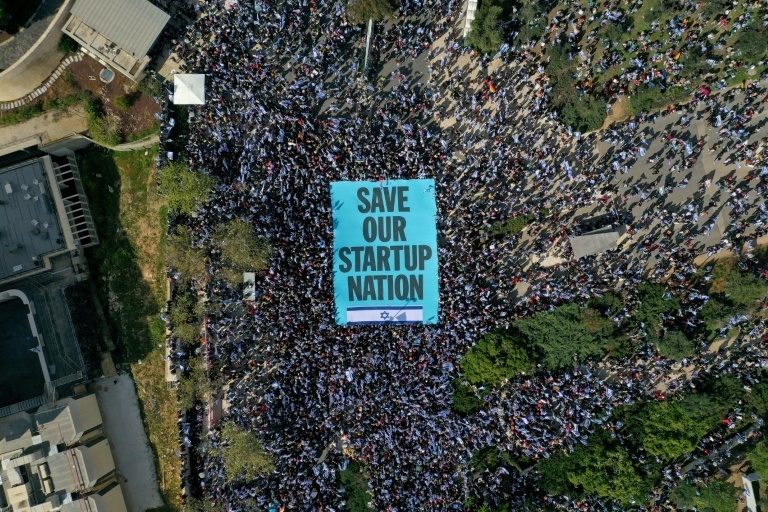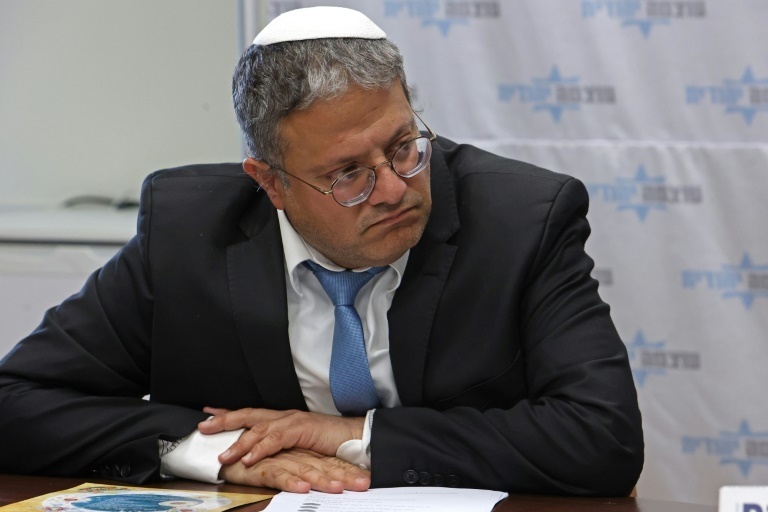Caution prevailed in Israel Tuesday after Prime Minister Benjamin Netanyahu vowed to pause controversial judicial reforms which sparked a general strike and mass protests, with the crisis far from over.
Netanyahu bowed to pressure in the face of a nationwide walkout Monday which hit hospitals, flights and more, while tens of thousands of reform opponents rallied outside parliament in Jerusalem.
"Out of a will to prevent a rupture among our people, I have decided to pause the second and third readings of the bill" to allow time for dialogue, the prime minister said in a broadcast.
The decision to halt the legislative process marked a dramatic u-turn for the premier, who just a day earlier announced he was sacking his defence minister who had called for the very same step.
The move was greeted with scepticism in Israel, with leading daily newspaper Yediot Aharonot commenting the premier "knew how to transform a crushing defeat with pretty words into a draw".
"Israeli society is boiling and what he's proposing is procedure," wrote columnist Nahum Barnea.
Opposition leader Yair Lapid reacted warily, saying he wanted to be sure "that there is no ruse or bluff".
"If the legislation truly and totally stops we are ready to engage in a real dialogue," he said in a televised address on Monday.

Activists who have led nearly three months of protests against the reform package vowed to continue their rallies.
"This is another attempt of Netanyahu trying to gaslight the Israeli public in order to weaken the protest and then enact a dictatorship," the Umbrella Movement of demonstrators said.
"We will not stop the protest until the judicial coup is completely stopped," it added in a statement.
- 'No turning back' -
President Isaac Herzog called for "sincere, serious and responsible dialogue". He said Monday he would host talks on the reforms, but when contacted by AFP a spokesman was unable to provide a schedule for such negotiations.
The crisis has revealed deep rifts within Netanyahu's fledgling coalition, an alliance with far-right and ultra-Orthodox parties.
Finance Minister Bezalel Smotrich asserted "there will be no turning back" on the judicial overhaul, in a tweet Monday.
Fellow far-right cabinet member, National Security Minister Itamar Ben-Gvir, had pressed his supporters to rally in favour of the reforms.

Writing in the left-wing daily Haaretz, political correspondent Yossi Verter said the pause was "a victory for the protesters, but the one who really bent Netanyahu and trampled on him is Itamar Ben-Gvir."
"Netanyahu has come out of this story like a pressed orange," wrote Verter.
The affair has hit the coalition's standing among the Israeli public, just three months after it took office.
Netanyahu's right-wing Likud party dipped seven points, according to a poll by Israel's Channel 12 which predicted the government would lose its majority in the 120-seat parliament if elections were held.
The fate of the ousted defence minister, Yoav Gallant, was unknown on Tuesday with speculation in Israeli media that he could be reinstated.
Gallant, who had warned of a threat to national security over the crisis, on Monday welcomed "the decision to stop the legislative process in order to conduct dialogue," his team said.
mib-rsc/kir
© Agence France-Presse
Your content is great. However, if any of the content contained herein violates any rights of yours, including those of copyright, please contact us immediately by e-mail at media[@]kissrpr.com.
Source: Story.KISSPR.com

